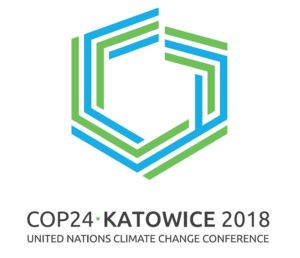COP24 adopts Paris Agreement implementation guidelines
 The United Nations (UN) climate talks (COP24) in the Polish city of Katowice, has agreed on the way forward for the Paris Agreement.
The United Nations (UN) climate talks (COP24) in the Polish city of Katowice, has agreed on the way forward for the Paris Agreement.
The close to 200 countries, that attended, adopted a set of rules for implementation of the landmark 2015 climate agreement in Paris.
This rulebook would promote international cooperation and greater ambition to cut emissions.
There is the added highpoint of building trust among nations – that all are playing their part in tackling the challenges of climate change.
Addressing the closing session of the conference, Mr. Michal Kurtyka, Secretary of State, Ministry of Environment of Poland, and the President of COP24, commended all nations for working tirelessly to bring the Paris Agreement to life.
“All nations showed their commitment. All nations can leave Katowice with a sense of pride, knowing that their efforts have paid off.
“The guidelines contained in the Katowice Climate Package provide the basis for implementing the agreement as of 2020.”
The theme chosen for the 13-day conference was “Changing together”.
The agreed guidelines sets out how countries would provide information about their Nationally Determined Contributions (NDCs) that describe their domestic climate actions.
This should include mitigation and adaptation measures as well as details of financial support for climate action in developing countries.
The package also involves the process for establishing new targets on finance from 2025 onwards to follow on from the current target of mobilizing US$100 billion per year from 2020 to support developing countries.
It also looks at how to conduct the global stock-take of the effectiveness of climate action in 2023 and how to assess progress on the development and transfer of technology.
Ms. Patricia Espinosa, the UN’s Climate Chief, could not hide her joy and said: “This is an excellent achievement”.
“The multilateral system has delivered a solid result. This is a roadmap for the international community to decisively address climate change.
“The guidelines that delegations have been working on day and night are balanced and clearly reflect how responsibilities are distributed amongst the world’s nations.
“They incorporate the fact that countries have different capabilities and economic and social realities at home, while providing the foundation for ever increasing ambition”, she added.
The agreed guidelines mean that countries can now establish the national systems that are needed for implementing the Paris Agreement in 2020.
The same would be done at the international level.
Functioning together, these systems would ensure that nations can act in an atmosphere of trust and assess progress of their climate actions.
Source: GNA
